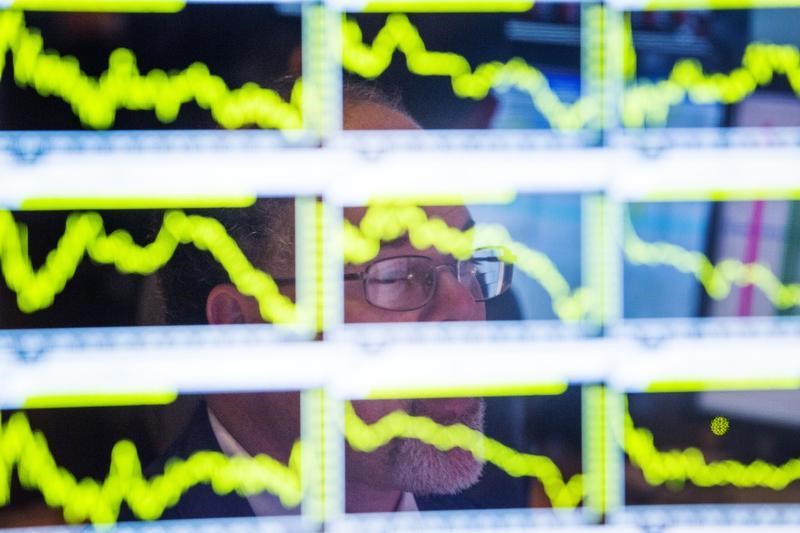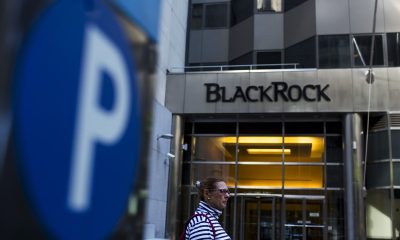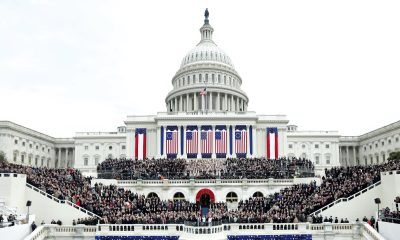Investing
As world leaders meet, Ukraine urges allies to be bolder on Russia sanctions

© Reuters. US President Joe Biden, Germany’s Chancellor Olaf Scholz, Britain’s Prime Minister Rishi Sunak, European Commission President Ursula von der Leyen, President of the European Council Charles Michel, Italy’s Prime Minister Giorgia Meloni, Canada’s Prime Min
By Matthias Williams, Olena Harmash and John O’Donnell
LONDON/KYIV (Reuters) – Ukraine wants its allies to be bolder in imposing sanctions on Russia, including by targeting banks that provide financial services to serving soldiers, a senior adviser told Reuters.
Vladyslav Vlasiuk, who advises President Volodymyr Zelenskiy’s chief of staff, also urged allies not to fear that a tougher sanctions clampdown could drive some countries closer to Russia, describing such a worry as overblown.
He was speaking in an interview from Kyiv as world leaders meet to discuss new sanctions measures and how to prevent Russia and companies in third countries from circumventing sanctions imposed after Moscow’s invasion of Ukraine last year.
Leaders of the Group of Seven (G7) convene in Japan this weekend, with Zelenskiy expected to join them, while European Union members are also working on an eleventh sanctions package.
“We are grateful for all the support we have received from our allies and we have seen some positive signals on the latest sanctions packages under consideration,” Vlasiuk said.
“But our allies should be bolder and refuse to pander to Kremlin propaganda that increased sanctions will drive nations closer to Russia.”
Vlasiuk called on allies to tighten sanctions on banks, singling out three lenders whose banking cards had been found on dead or captured soldiers on the battlefield in eastern Ukraine.
The three lenders are Gazprombank – the financial arm of Russia’s gas monopoly Gazprom (MCX:), Tinkoff Bank, owned by TCS Group Holding, and Rosselkhozbank, an agricultural bank. All three banks did not respond to a request for comment.
The Gazprombank card was in khaki colour and emblazoned with the words “Russian army”, according to photos shared with Reuters.
Tinkoff and Rosselkhozbank have already been excluded from the SWIFT global payments system, but other banks have been subjected to full blocking sanctions.
Gazprombank has escaped the harshest sanctions as it is a key conduit in the energy trade.
“Russian banks who provide financial services to Russian soldiers fighting an unlawful war of aggression on Ukrainian soil should face the toughest possible sanctions from our allies,” Vlasiuk said.
“These bank cards are fresh evidence of the loopholes in the sanctions regime brought in to respond to the war crimes extravaganza currently taking place within Ukraine,” he said, adding there were “no further excuses”.
CLOSING LOOPHOLES
Vlasiuk said Rosselkhozbank had been shielded from sanctions because it was seen to be linked to food security, but he questioned the logic behind this.
“We have nothing against food security but, again, if these banks are also doing some transactions in the military area, that makes it not particularly a food security bank,” he said.
Citing a rise in exports to Russia’s neighbours as evidence that entities in third countries such as Kazakhstan and Georgia were being used to circumvent sanctions on Moscow, Vlasiuk called on Ukraine’s allies to be bolder.
He also criticised threats from neighbouring Hungary to block new EU sanctions and military aid unless Kyiv removes Hungarian bank OTP from its list of war sponsors, saying the two issues should be kept separate.
Vlasiuk was encouraged about movement towards sanctions on Russia’s diamond industry but was more pessimistic that countries would fall into line with a U.S.-led push to widen the scope of sanctions of traded goods with Russia.
U.S. officials expect G7 members to adjust their approach to sanctions so that, at least for certain categories of goods, all exports are automatically banned unless they are on a list of approved items, according to people familiar with the talks.
“There is an idea pushed mostly by the U.S. to … forbid all the dual-use goods trade except for some exceptions,” Vlasiuk said.
“But I’m not sure that all the G7 countries are going to support that. So I don’t really think there is going to big progress in that regard but maybe, maybe, maybe they will surprise us, so let’s wait and see.”
Read the full article here

-

 Make Money6 days ago
Make Money6 days ago10 Critical Questions to Ask Your Financial Advisor Now
-

 Make Money5 days ago
Make Money5 days ago10 Ways to Make Money As a Graphic Designer
-

 Personal Finance4 days ago
Personal Finance4 days agoIf you are 60 years old, new 401(k) rules could save you money
-

 Investing5 days ago
Investing5 days agoCould Easier Cancellations Build Customer Loyalty?
-

 Investing6 days ago
Investing6 days agoAirbus keeps top spot with 766 jet deliveries in 2024 By Reuters
-

 Investing3 days ago
Investing3 days agoBank regulator gives BlackRock new deadline on bank stakes, Bloomberg reports By Reuters
-

 Side Hustles5 days ago
Side Hustles5 days agoTrump’s 2025 Inaugural Committee Raises Record $170 Million
-

 Side Hustles4 days ago
Side Hustles4 days ago5 AI Books Top Entrepreneurs Are Reading in a Rush for 2025


















